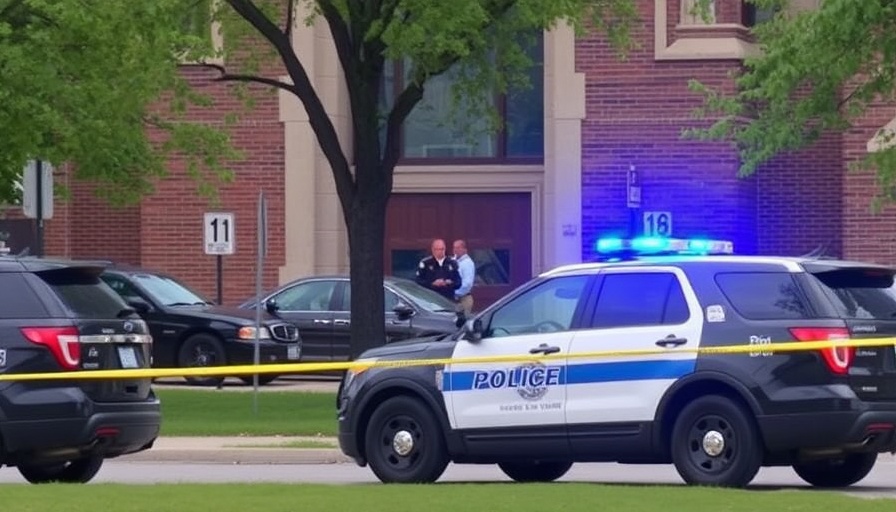
Understanding the Persistent Threat: Anti-LGBTQ Hate Crimes
In recent years, the U.S. has faced a notable decline in overall violent crime, yet paradoxically, reports of anti-LGBTQ hate crimes have continued to rise. The 2023 FBI report indicates that while many types of violent crime fell, incidents targeting the LGBTQ community increased significantly, prompting urgent discussions about systemic discrimination and public safety. The growing number of hate crimes challenges the narrative of overall safety and reveals deeper societal issues that need immediate attention.
What Does the Data Say?
The statistics from the FBI highlight a troubling reality: anti-LGBTQ violence represents a distinct category of hate crimes that is not only prevalent but increasing. In the latest findings, attacks motivated by anti-LGBTQ sentiment have surged by over 25% compared to previous years. This spike is alarming, particularly as it stands in stark contrast to the general reduction of other violent crimes, which have seen a nationwide decrease of about 10%.
Moreover, the targeting of LGBTQ individuals often carries a specific cruelty that reflects the broader cultural and political tensions emanating from Washington, as issues surrounding LGBTQ rights remain hotly contested both in Congress and on state levels. As political factions engage in partisan battles over policies and legislation affecting civil rights, the implications for vulnerable communities become particularly pronounced.
The Role of Political Climate in Violence
Politics undeniably plays a significant role in shaping societal attitudes, and the current climate has arguably exacerbated tensions surrounding LGBTQ rights. With various legislations being passed that either support or attack the rights of LGBTQ individuals, including recent debates in the House of Representatives and high-profile cases pending in the Supreme Court, there is a direct correlation between political rhetoric and the rise of hate crimes. The frequent use of language that delegitimizes LGBTQ identities can lend itself to a culture of hatred and violence, which communities such as the LGBTQ sector have had to combat actively.
Future Predictions: What Lies Ahead?
The prediction for LGBTQ rights is precarious as the political landscape evolves. With an upcoming election cycle, voter turnout and public sentiment towards LGBTQ rights will be pivotal in shaping the future of these communities. Observers draw parallels between past elections and the shifts in laws that affected LGBTQ rights, particularly in swing states where pivotal votes can significantly influence Senator and House representatives' stances on LGBTQ-related legislation.
A critical upcoming battleground will be the approach to issues such as healthcare access, recent anti-trans legislation, and the potential for transformative reforms in the Supreme Court that could either fortify or dismantle the rights LGBTQ individuals have fought hard to secure over the last few decades.
Taking Action: Enhancing Awareness and Empathy
In light of these persistent threats, community awareness and legislative advocacy become crucial. Engagement in local advocacy efforts, understanding the nuances of upcoming legislative changes, and fostering open dialogues about LGBTQ rights among peers can make a considerable difference. Professionals and community leaders are in a unique position to influence public opinion and engage in activism that supports vulnerable populations.
Moreover, fostering empathetic interactions and educating others on the implications of anti-LGBTQ violence can ultimately change perceptions and drive the momentum for positive legislation. The imperative for allies to stand boldly with LGBTQ communities has never been clearer, especially in an environment characterized by increasing tensions and fear.
Conclusion: The Time for Action is Now
The troubling rise in anti-LGBTQ hate crimes amidst a decline in overall violent crime serves as a reminder of the work ahead. As professionals, engaged citizens, or leaders, it is our responsibility to dissect the implications of this data and advocate for a safe environment for all. By taking proactive steps today, we can contribute to shaping a future where every individual can live without fear of violence due to their identity.
To be a change agent in combating hate, consider joining or supporting organizations dedicated to enhancing LGBTQ rights and safety. Your role can make a difference in creating systemic changes that promote equity and respect.
 Add Row
Add Row  Add
Add 




Write A Comment